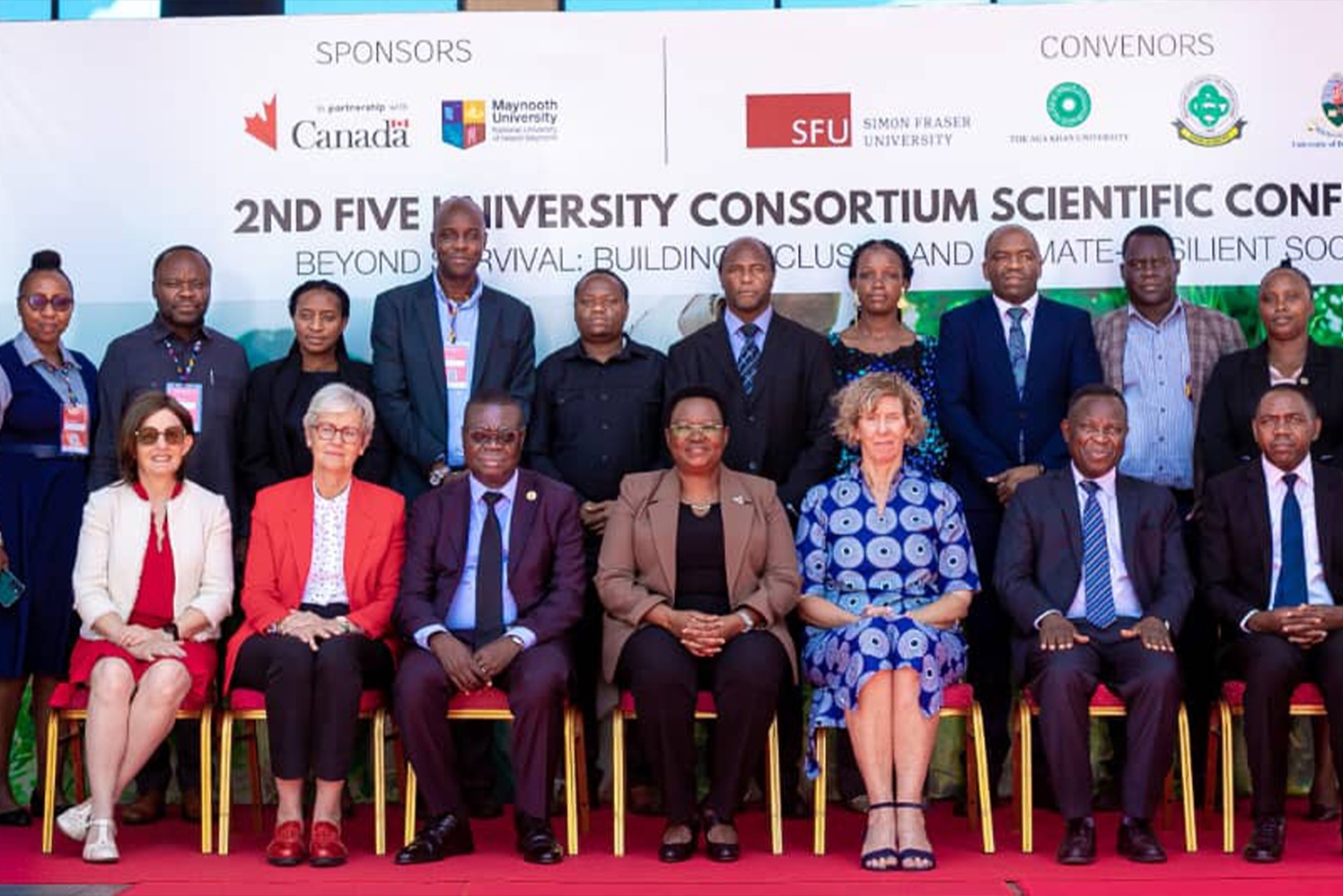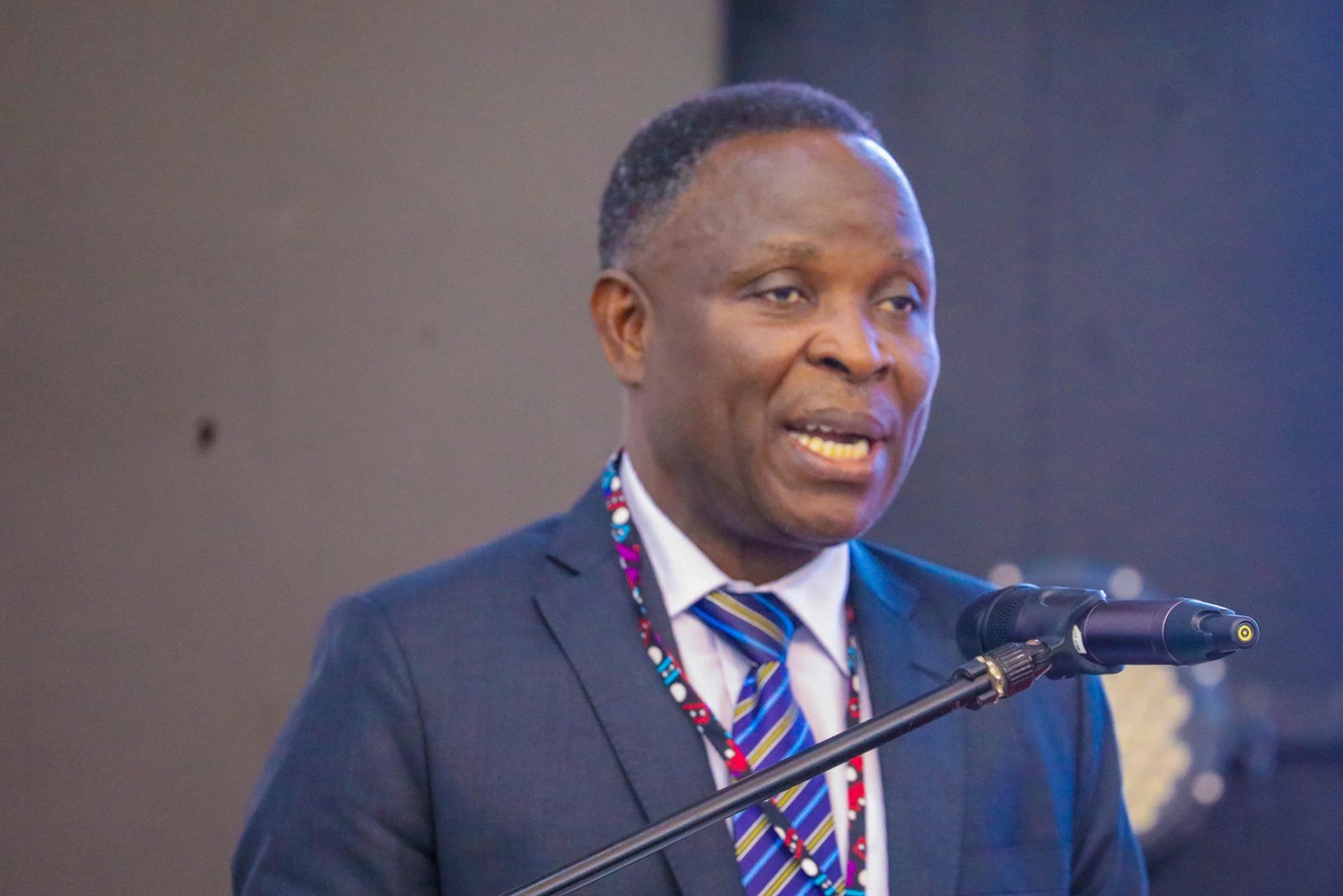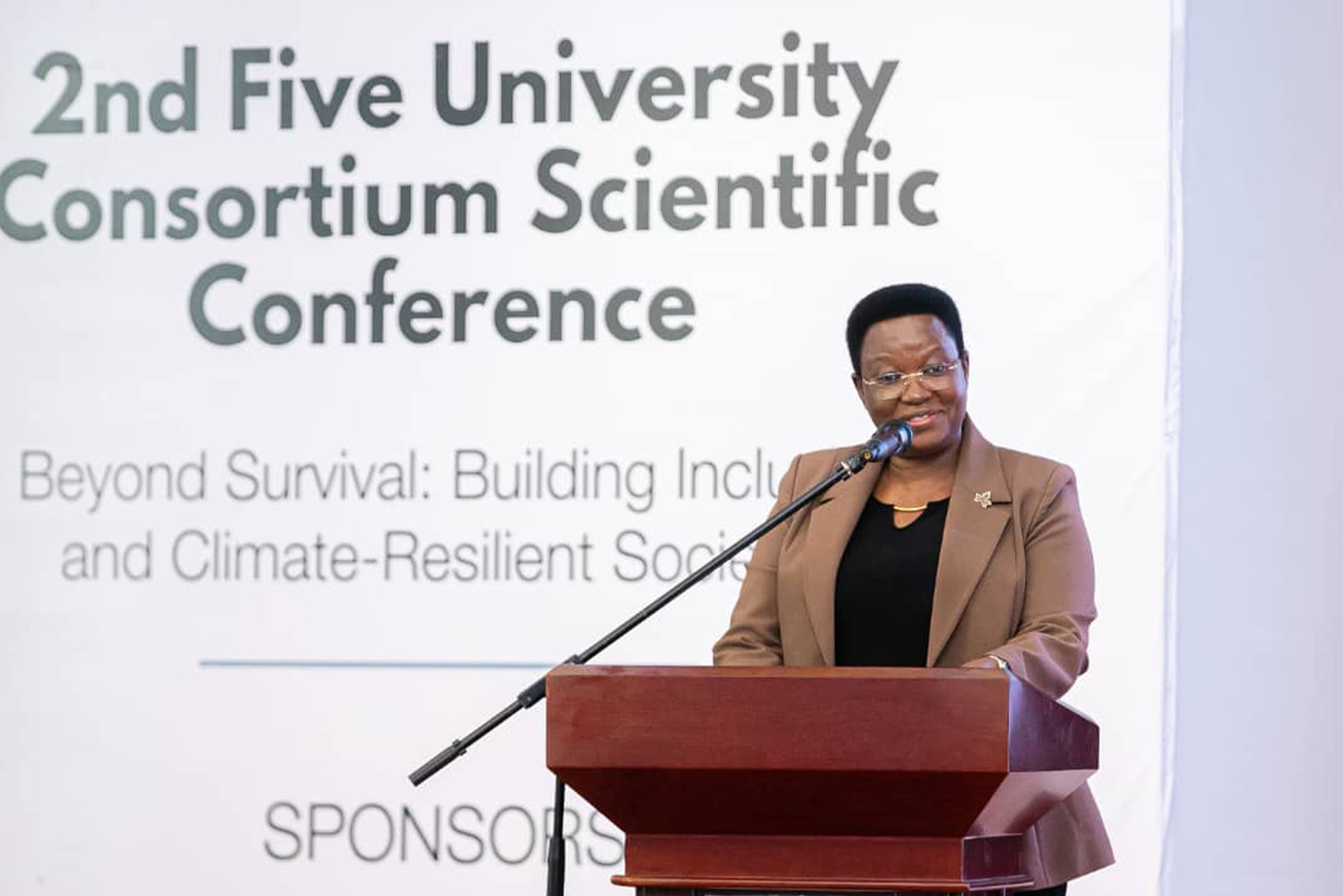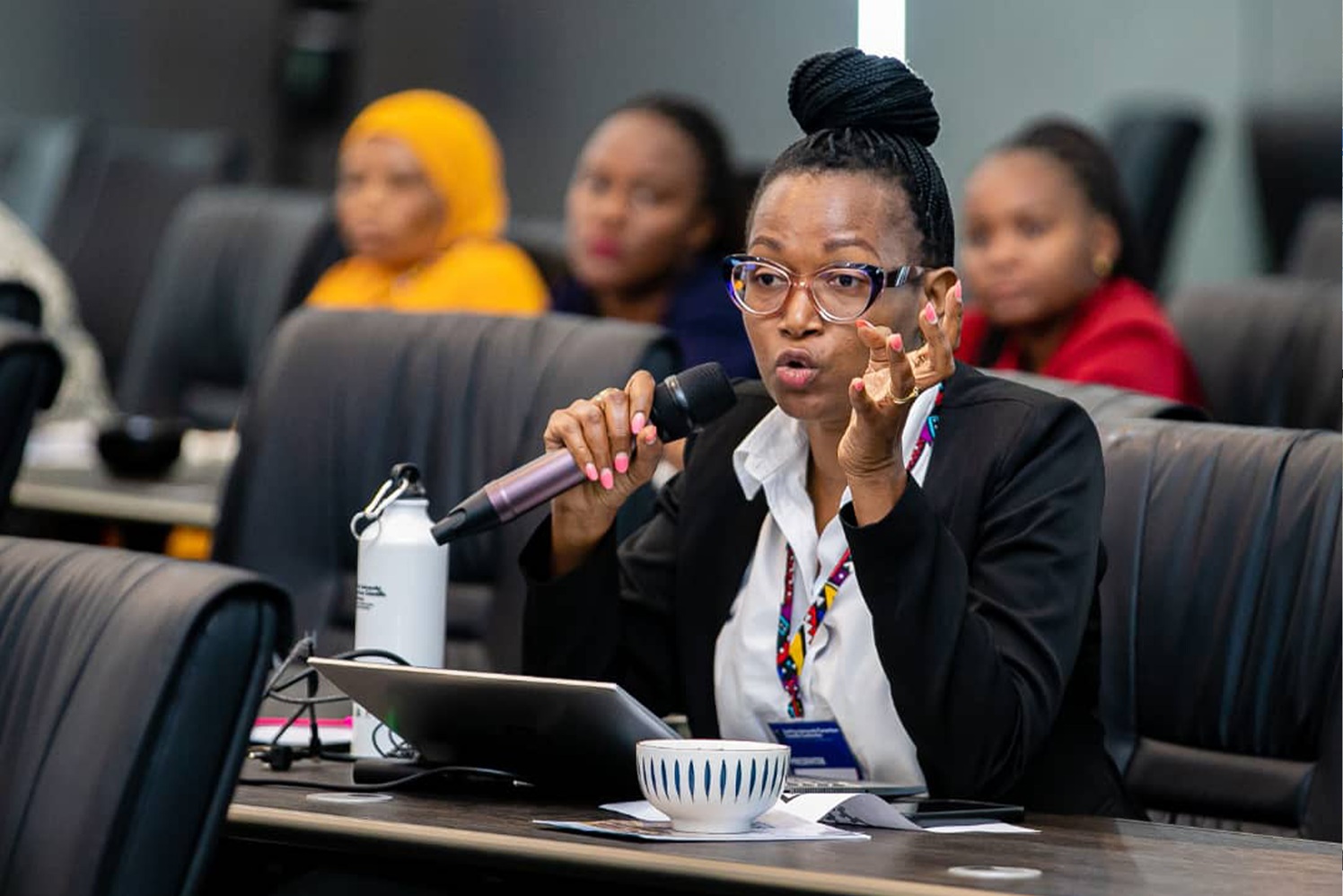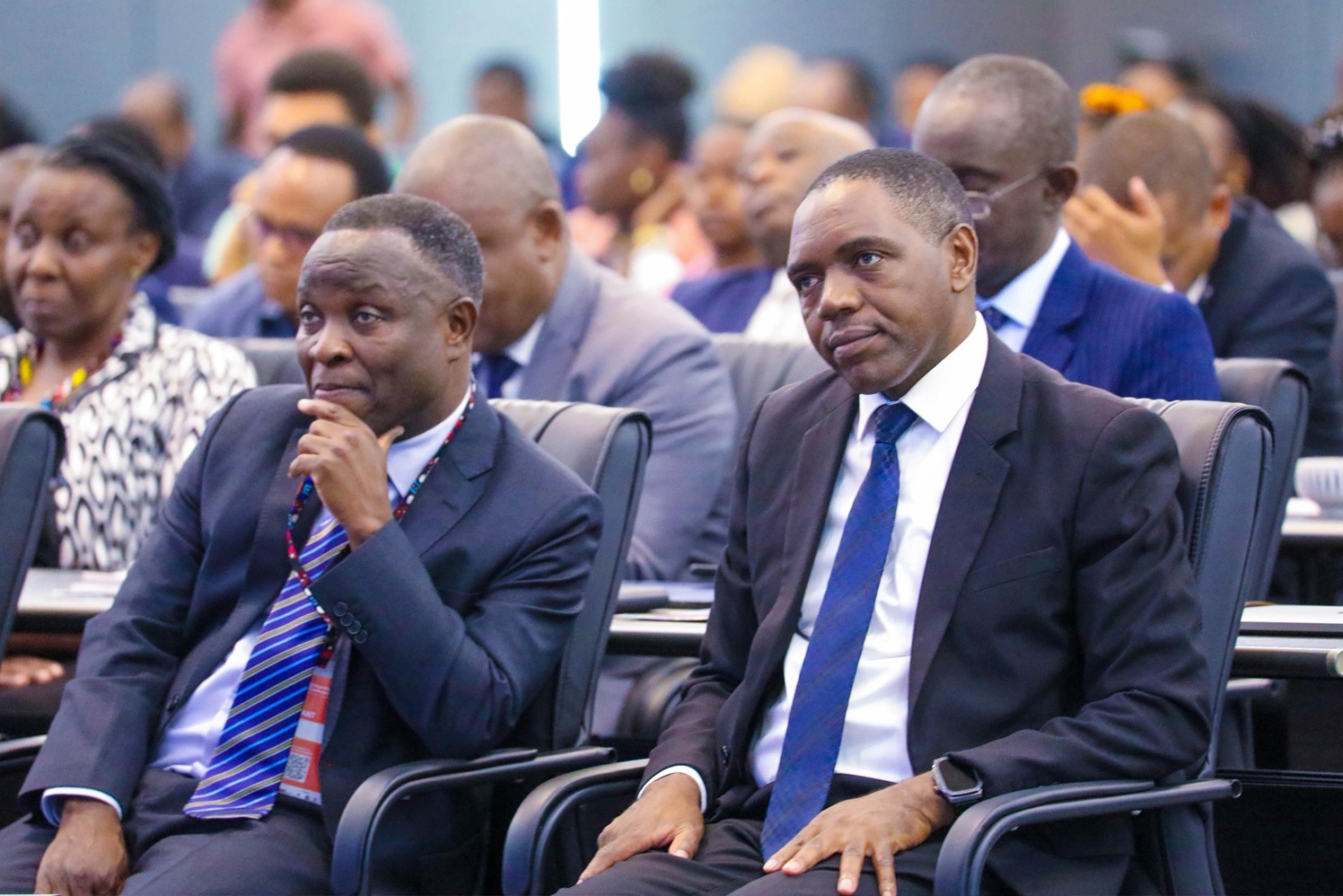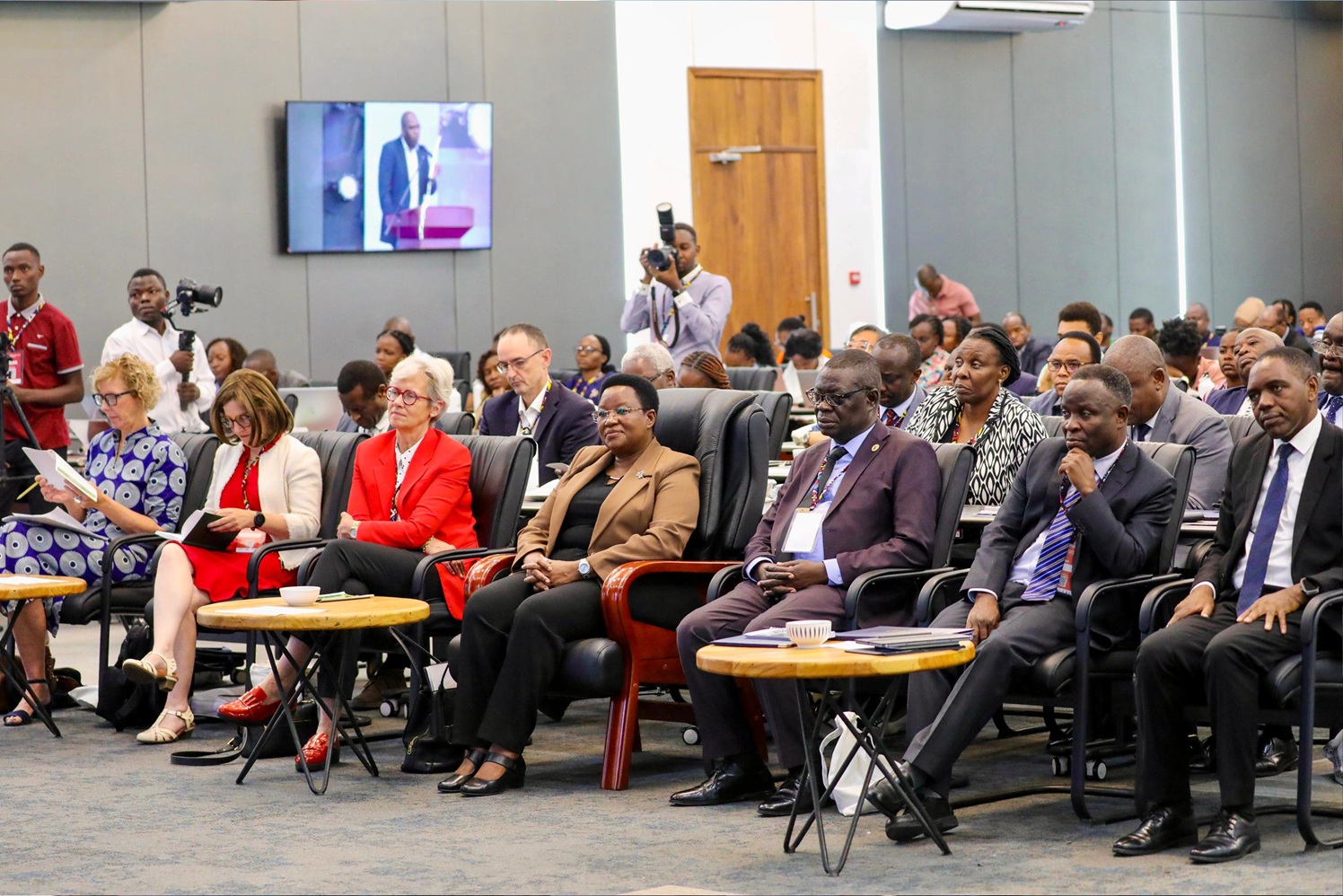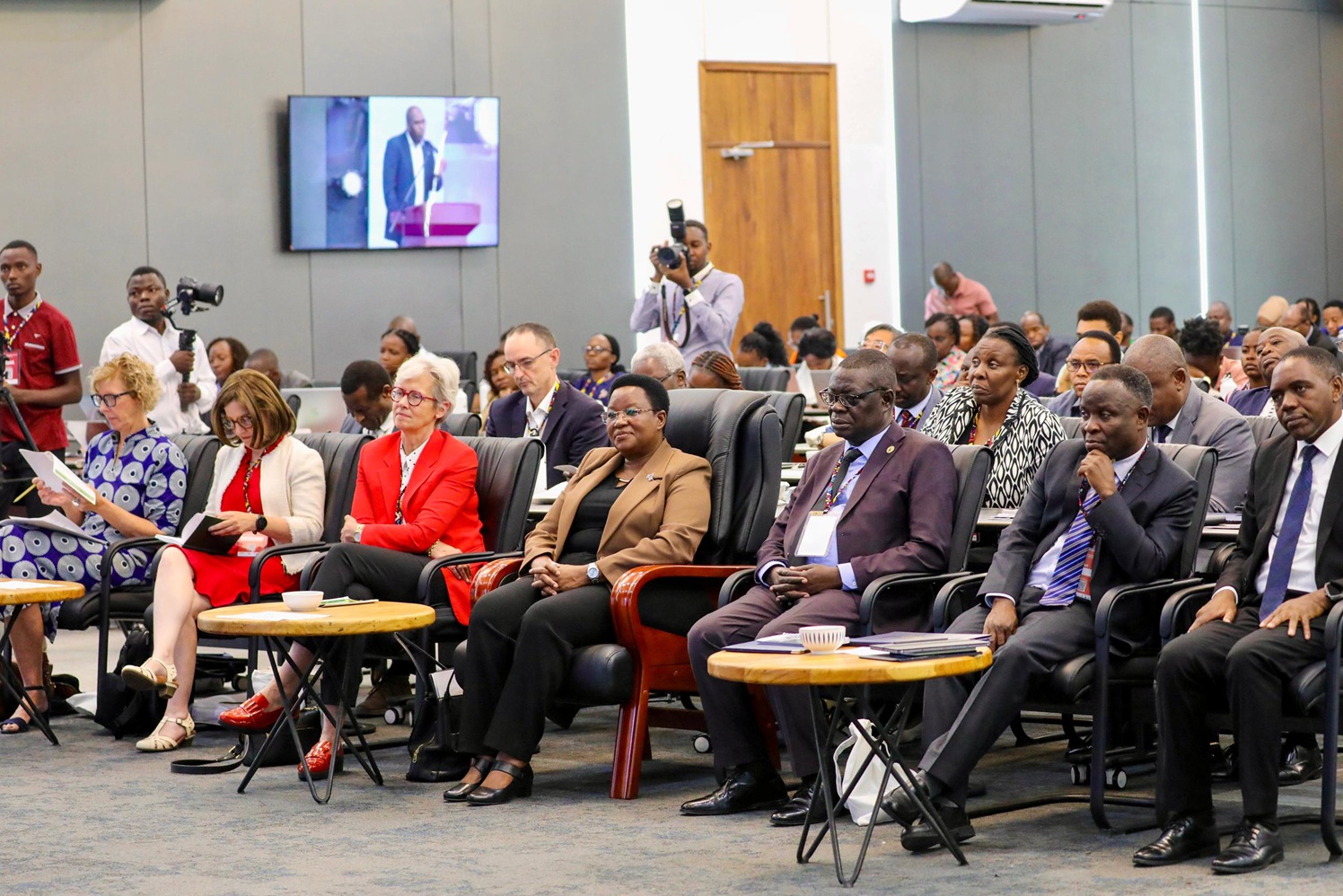UDSM, Partner Varsities Champion Climate-Resilient Research for Sustainable Development
By Jackson Isdory, CMU
Scholars and leaders from the University of Dar es Salaam and other four leading universities in Tanzania and Canada recently converged for the Second Five University Consortium Scientific Conference, a landmark academic event focused on building inclusive and climate-resilient societies.
Held from 30th September to 1st October 2025 at the Cate Convention Centre in Morogoro, the conference was hosted by Sokoine University of Agriculture (SUA) under the theme “Beyond Survival: Building Inclusive and Climate-Resilient Societies”.
The Tanzanian members of the consortium include the University of Dar es Salaam (UDSM), SUA, Aga Khan University, and the Nelson Mandela African Institution of Science and Technology (NM-AIST). From Canada, Simon Fraser University (SFU) joined as a partner.
With a mission to advance research, innovation, and international collaboration in addressing global challenges, the consortium convenes experts in agriculture, health, environmental science, and governance. Its research priorities—sustainable agriculture, climate change adaptation, public health, and governance—are designed to deliver practical solutions aligned with Tanzania’s Vision 2050, UDSM’s Vision 2061, and the United Nations Sustainable Development Goals (SDGs).
Guest of Honour, Prof. Carolyne Nombo, Permanent Secretary at the Ministry of Education, Science and Technology, commended the consortium as a model of academic cooperation aligned with national aspirations.
“This initiative supports our national agenda to internationalise education and strengthen partnerships for innovation. Universities are incubators of knowledge and drivers of resilience. The outcomes of this conference must inform policy and practice, ensuring our research addresses both local realities and global imperatives”, said Prof. Nombo.
She also conveyed greetings from H.E. Dr. Samia Suluhu Hassan, President of the United Republic of Tanzania, reaffirming government support for higher education as a pillar of sustainable development under the National Vision 2050.
Welcoming participants, Prof. Raphael Chibunda, Vice Chancellor of SUA and Chairperson of the Consortium, emphasised the urgency of action. “This conference is not merely an academic exercise; it is a call to action. We must generate solutions that extend beyond papers and directly impact communities”, he said, citing SUA’s pioneering work in sustainable agriculture, forestry, and renewable energy alternatives that reduce reliance on firewood and charcoal.
UDSM’s strategic role in the consortium
Representing UDSM, the Vice Chancellor Prof. William A. L. Anangisye, underscored the university’s role in shaping collaborative solutions to global challenges.
“As Tanzania’s oldest and premier university, UDSM remains steadfast in producing knowledge that serves society. We are proud to contribute expertise in climate science, public health, and inclusive development to this consortium. The solutions we seek demand collaboration that transcends institutions and borders,” he said.
Prof. Anangisye further confirmed that UDSM has updated its curriculum to align with international standards and labour market needs. These reforms include the introduction of interdisciplinary courses, expanded practical training, and enhanced research opportunities, initiatives that advance Vision 2061’s focus on producing globally competitive graduates and fostering innovation ecosystems.
The conference also showcased the strengthening of academic ties between Tanzania and Canada. Dr. Joy Johnson, President of Simon Fraser University, described the partnership as “a milestone in Tanzania–Canada relations,” pledging SFU’s commitment to supporting communities in adapting to climate change through applied research.
“Partnerships like the Five University Consortium not only expand academic frontiers but also embody shared responsibility. By pooling expertise and resources, we are crafting solutions that are both innovative and inclusive,” said Dr. Johnson.
The importance of actionable research
Dr. Mathew Senga, Director of Research and Publication at UDSM, stressed the importance of actionable research. “Research must inform policies, shape industry practices, and empower communities. Our agenda at UDSM is to ensure findings move from conference halls to villages, schools, hospitals, and parliaments.”
Dr. Mkunde Chachage, Programme Coordinator at UDSM, highlighted inclusivity as central to the consortium’s mission. “This collaboration gives young scientists, especially women and early-career researchers, a platform to lead innovation. Climate resilience requires not only technology but also equity and participation across all sectors of society.”
The consortium is expected to generate outcomes that inform national strategies and regional policies. Its sub-themes include health systems, sustainable agriculture, environmental integrity, inclusivity, governance, and technology for development.
The Morogoro conference marks a pivotal step in positioning Tanzanian universities as leading actors in shaping a sustainable, inclusive, and climate-resilient future for the nation, the region, and the world.


